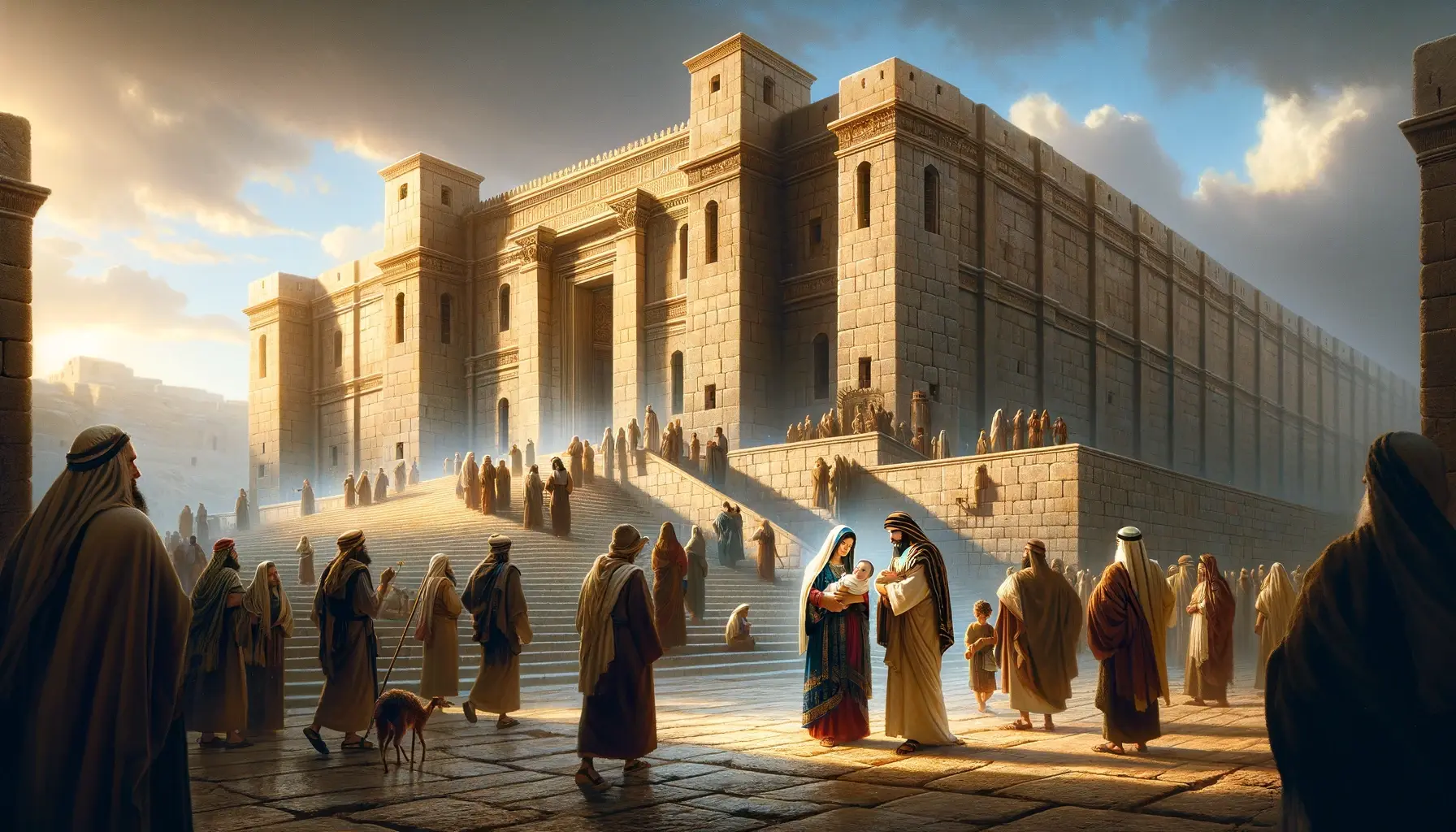Introduction
Good Friday is a day of great meaning for Christians worldwide, marking the pivotal moment in the history when Jesus Christ willingly suffered and died on the cross for the sins of humanity. This recognition of this solemn occasion, observed as a time of reflection, gratitude, and reverence, dates back to at least the 4th century, when the term “Good Friday” first appeared. In this context, the word “good” can also be understood as “holy” or “pious,” emphasizing the sacred nature of this day.
The events that transpired on Good Friday underscore the depth of God’s love and the magnitude of Christ’s sacrifice. As the Apostle Paul writes in Romans 5:8:
This is a powerful statement which communicates the essence of God’s great rescue plan for humanity. It is the core of the Christian message—that God’s love for humanity is so great that He sent His Son (also God) to die in our place, offering us forgiveness and reconciliation to Himself.
Through His death on the cross, Jesus took upon Himself the punishment for our sins, bearing the weight of our transgressions and providing a way for us to be made right with God. This truth is beautifully expressed in 2 Corinthians 5:21:
Christ’s sacrifice on Good Friday is the foundation of our salvation and the cornerstone of our faith.
As we reflect on the significance of Good Friday, we are reminded of the immeasurable love and grace that God has shown us through the gift of His Son. The cross stands as a symbol of God’s redemptive plan, demonstrating the lengths to which He was willing to go to rescue humanity from the bondage of sin and death. It is a day to contemplate the cost of our salvation through the sacrifice that Christ made on our behalf.
Good Friday also serves as a poignant reminder of the hope that we have in Christ. While the crucifixion marks a moment of great sorrow and darkness, we know that it is not the end of the story. The events of Good Friday set the stage for the glorious triumph of Easter Sunday when Jesus conquered death and rose victorious from the grave. This victory over sin and death is the basis for our hope and the assurance of our own future resurrection.

As we gather on Good Friday to remember the suffering and sacrifice of our Savior, let us approach this day with reverence, humility, and a deep sense of gratitude. May we take time to reflect on the love that God has demonstrated for us through the cross and the hope that we have in Christ’s resurrection. Let us also be reminded of our call to share this message of hope and redemption with a world in need, proclaiming the good news of Christ’s saving work to all who have ears to hear.
Christ’s Saving Work
The Bible provides us with many passages that illuminate the life, death, and saving work of Jesus Christ. These scriptures offer profound insights into the nature of God’s love, the purpose of Christ’s sacrifice, and the implications of His victory over sin and death.
In Philippians 2:5-8, the apostle Paul beautifully describes the divine nature and humility of Christ. He writes of Christ Jesus:
This passage highlights the incredible humility of Christ, King and Creator of the Universe, who willingly set aside His divine privileges to take on human form and offer Himself as a sacrifice for our sins.
Christ’s obedience to the point of death, His desire to do the Father’s will cannot be overstated. Jesus Himself declared in John 10:18:
Christ’s death was not a tragedy or an accident, but a deliberate act of love and obedience to the Father’s will by which He becomes the cornerstone of the Christian faith. In 1 Corinthians 15:3, Paul reminds us of the gospel message he received and passed on:
He died as a sinless and innocent sacrifice, willingly taking upon Himself the sins of the world.
Christ’s death not only atoned for our sins but also fulfilled the requirements of the law. As Paul explains in Romans 10:4:
Jesus Himself declared in Matthew 5:17:
We could never hope to fulfil the requirements of the Law, a fact that 1500 years of Jewish history made sufficiently clear. The Law makes us aware of our sin but has no power to redeem us. Only through Jesus’ perfect life and sacrificial death could he satisfied the demands of God’s holy law, making a way for us to be justified by faith in Him.
The death of Christ has profound implications for our lives. Because of His sacrifice, we have been reconciled to God and given the gift of new life. As Paul writes in 2 Corinthians 5:17-18:
Through faith in Christ, we are born again and become part of God’s family, experiencing the joy and peace that come from a restored relationship with our Creator. Paul called that adoption in Ephesians 1.
The saving work of Christ on the cross was God’s ultimate victory over evil and sin. In Ephesians 4:9, Paul refers to Christ’s descent “into the lower parts of the earth.” While there is debate as to the meaning of this phrase the most common interpretation is that it refers to Christ’s proclamation of victory to the spirits in the spiritual realm. Peter elaborates on this idea in 1 Peter 3:19-20, stating that:
This verses informed early Christians, who formed the Apostles Creed, that Jesus did in deed visit Hell and return the conqueror as it says:
[He] was crucified, died, and was buried;
Apostles Creed
He descended into hell;
On the third day He rose again from the dead.”
For this reason many scholars see these verses as a reference to Christ’s triumph over the powers of evil and death. Through His death and resurrection, Jesus defeated the forces of darkness and proclaimed His victory over them. As Colossians 2:15 declares:
This victory has cosmic implications, demonstrating Christ’s lordship over all realms and assuring believers of their ultimate triumph in Him.
The resurrection of Jesus Christ is the glorious culmination of His power and authority in action. It is the ultimate demonstration and confirmation of Christ’s victory over sin and death. As Peter proclaims in Acts 2:31, speaking of Christ:
This prophetic statement underscores the inevitability of Christ’s resurrection, affirming that death could not hold Him in its grip.
As Christians the world over profess – the resurrection of Jesus was not a mere resuscitation or a metaphorical event, but a powerful display of God’s ability to conquer death itself. The risen Jesus did not come back as a ghost or spirit either – he inhabited a physical body, perfected and pure, able to eat and be touched, able to interact with His followers in His full presence. (Luke 24:36-43, John 20:24-29, John 20:14-17, Acts 1:3)

The historical reality of Christ’s resurrection is firmly established in the New Testament. In 1 Corinthians 15:4-8, Paul provides a compelling account of the events following Christ’s death:
Observe the emphasizes on the tangible nature of Christ’s resurrection. He was not merely a spirit or a vision, but a physical being who appeared to numerous eyewitnesses. The fact that Paul specifically mentions that many of these witnesses were still alive at the time of his writing adds credibility to their testimony. These individuals had encountered the risen Christ and were willing to stake their lives on the truth of His resurrection. The fact that He inhabited a physical, tangible form was unlike anything ever considered before. His followers were able talk with Him, to eat with Him and He was even able to be touched. (Luke 24:36-43, John 20:24-29, John 20:14-17, Acts 1:3)
The resurrection appearances of Jesus were not limited to the immediate aftermath of His death. As Acts 1:3 states:
During this time, Jesus continued to teach and commission His disciples, preparing them for the task of spreading the gospel to the ends of the earth.
The Christian faith rests completely on the reality of Christ’s resurrection. As Paul argues in 1 Corinthians 15:17:
The resurrection is the cornerstone of our belief, affirming the truth of Christ’s claims and the efficacy of His atoning work. It is the basis for our hope of eternal life and the assurance of our own future resurrection (1 Corinthians 15:20-23).
As we reflect on the saving work of Christ, let us marvel at the power and significance of His resurrection. May we, like the early disciples, be filled with joy and wonder at the reality of the risen Savior. And may we boldly proclaim the good news of His victory, knowing that because He lives, we too shall live (John 14:19).
Theological Implications
The saving work of Jesus Christ on the cross and through His resurrection has far-reaching theological implications that shape our understanding of God, humanity, and the nature of salvation. These truths form the bedrock of the Christian faith and offer a transformative vision of God’s redemptive purposes for the world.
At the heart of Christ’s saving work is a cosmic rescue plan that reflects God’s eternal purpose to redeem humanity. As Paul writes in Ephesians 1:4 –
This verse reveals that God’s plan of salvation was not an afterthought or a response to an unforeseen problem, but an integral part of His divine will from before the foundation of the world. The scope and scale of Christ’s saving work are truly breathtaking, encompassing the redemption of individuals, the restoration of creation, and the ultimate reconciliation of all things to God (Colossians 1:19-20).
The depths of God’s love and grace are brilliantly displayed in the sacrifice of Jesus Christ. As John famously declares in John 3:16 –
This verse exquisitely expresses the profound truth that God’s love for humanity is so great that He was willing to give His beloved Son to die in our place. Christ’s death on the cross was the ultimate demonstration of divine love, a love that is unconditional, self-sacrificing, and unmerited by sinful humanity (Romans 5:8).
The grace of God that is revealed in Christ’s saving work is a theme that permeates the New Testament. As Paul writes in Ephesians 2:8-9 –
Salvation is not something that we can earn or deserve, but rather a free gift that God extends to us through faith in Christ. This unmerited favor is a source of incredible comfort and assurance for believers, knowing that our standing before God is based not on our own righteousness but on the perfect righteousness of Christ – as we have no righteousness of our own (Isaiah 64:6).
Christ’s victory over death and evil is another result of the work the cross. Ultimately sin and death are defeated as is the devil. As Paul declares in 1 Corinthians 15:55-57 –
For the believer this victory liberates us from the fear of death and the bondage of sin. While sin, death and the devil have temporal effects today we know that they will be eliminated in the end. Today we are no longer slaves to the power of evil but have been set free through the work of the Holy Spirit to live in the glorious liberty of the children of God (Romans 8:21).
The saving work of Christ also brings about our adoption into the family of God. As Paul writes in Ephesians 1:4b-5 –
Through faith in Christ, we are no longer strangers and aliens but beloved children of God (Ephesians 2:19). This restored relationship with our Heavenly Father brings with it incredible privileges, such as access to God’s presence, the assurance of His love and care, and the inheritance of eternal life (Romans 8:16-17). At the same time, our adoption also carries with it the responsibility to live as faithful and obedient children, reflecting the character of our Father in our lives (Ephesians 5:1-2).
God the Father affirms Christ’s lordship over all things and all realms because of His willingness to do the Father’s will on the cross. As Paul writes in Philippians 2:9-11:
Christ’s authority extends over all of creation, including the spiritual realm. His victory on the cross disarmed the powers and authorities that opposed God’s purposes (Colossians 2:15), and His resurrection demonstrated His supremacy over all other powers. As believers, we can take great comfort in knowing that our Savior is the sovereign Lord of all, and that His kingdom will ultimately triumph over all opposition (Revelation 11:15).
Finally, the saving work of Christ provides a sure and certain hope for believers in the promise of resurrection and eternal life. As Jesus Himself declared in John 11:25-26:
Christ’s resurrection is the guarantee of our own future resurrection when we will be raised imperishable and clothed with immortality (1 Corinthians 15:52-54). This hope is an anchor for the soul, firm and secure (Hebrews 6:19), enabling us to face the trials and difficulties of this life with confidence and joy.
Moreover, the promise of eternal life in God’s presence is the ultimate hope of every believer. As Paul writes in Romans 6:23 –
This life is not merely an endless existence but a qualitatively different kind of life, one that is characterized by unhindered fellowship with God, perfect joy, and the absence of all sin, sorrow, and suffering (Revelation 21:3-4). It is a life that begins now through faith in Christ and will find its ultimate fulfillment in the age to come.
As we reflect on the theological implications of Christ’s saving work, let us be filled with wonder, gratitude, and praise. May our hearts be captivated by the depths of God’s love and grace, and may our lives be transformed by the power of Christ’s victory over sin and death. Let us hold fast to the hope of our resurrection and the promise of eternal life, knowing that in Christ, we have a sure and certain future that can never be taken away.
Conclusion
On this Good Friday, let us see the depths of God’s love and the lengths to which He was willing to go to rescue humanity from the bondage of sin and death. As we contemplate the cross, let us be reminded of the words of the apostle Paul in Romans 8:38-39:
This love, demonstrated in the sacrificial death of Christ, is our promise of life everlasting in His presence and our hope if we have placed our faith in Him.

Let us also look forward with anticipation to the joy and victory of Easter Sunday. The darkness of the cross gives way to the light of the empty tomb, as Christ triumphs over sin and death and offers the promise of new life to all who believe. As Peter declares in 1 Peter 1:3 –
Let us grasp onto the living hope which we have in Him and only through His saving work. He lives and so can we!
Praise God!




